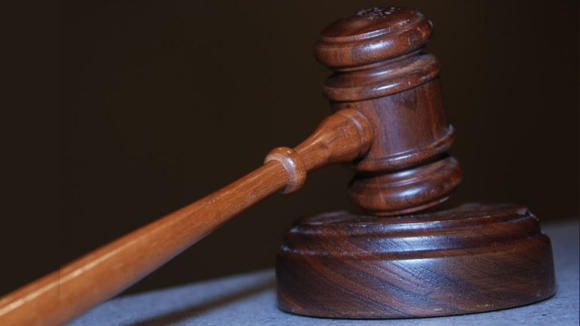When tech's on trial, we're the losers
Innovation doesn't happen in courtrooms

Remember 4G, the super-speedy mobile broadband technology that's coming to the UK next month? You can probably forget about it again, because O2's threatening to sue if Everything Everywhere is allowed to launch before anybody else.
O2's position is effectively "if we can't have 4G, then nobody can, so nerrrr nerrr nerrr." EE's response? "If we can't have 4G now, then nobody can next year, so nerrr nerrr nerrr": it's strongly hinting that it'll torpedo next year's 4G auction with its own legal tomfoolery.
This is why we can't have nice things.
A bark, not a bite
This week's big legal story, of course, was Apple's triumph over Samsung: a jury found that Apple's business partner was a little too keen on copying Apple's ideas. Apple says that the case was essential to protect innovation, and Apple is telling great big porkies.
Did Samsung copy Apple? I reckon so. Did it harm Apple? I very much doubt it. Apple's in the middle of an extraordinarily productive and innovative streak, and it's hard to imagine it being any more innovative if it weren't having to beat its imitators.
If anything, the imitators probably helped: without them, Apple might have done a Nokia or a Motorola and sat on its big fat patent portfolio instead of working like crazy to out-innovate everybody else.
Apple doesn't really think it can stop people copying it. The Samsung trial was a bark, not a bite.
Get daily insight, inspiration and deals in your inbox
Sign up for breaking news, reviews, opinion, top tech deals, and more.
The problem is that barks can affect end users. For example Apple wants a US sales ban on some Samsung kit while in South Korea both Apple and Samsung hardware have been temporarily blocked. The Associated Press says there are more than 50 patent lawsuits floating around the smartphone and tablet industry, and it isn't too hard to imagine everybody demanding sales bans on everybody else's products.
The losers here aren't the tech firms. Apple's victory means other firms will just be more careful with their copying, and Samsung will no doubt see its fine - a tiny sum compared to its smartphone earnings - as an acceptable cost of doing business.
The bickering over 4G will eventually be settled, and as with 3G we'll probably end up with a service that all too often costs too much and delivers too little.
Meanwhile somebody else will sue somebody else over something else and the whole thing will start rolling again, the legal fees and licensing fees trickling down into the prices we pay for our phones and our data plans and our tablets - that is, assuming sales bans don't stop us from buying them.
Whenever technology goes on trial, ordinary punters tend to lose out.
Writer, broadcaster, musician and kitchen gadget obsessive Carrie Marshall has been writing about tech since 1998, contributing sage advice and odd opinions to all kinds of magazines and websites as well as writing more than a dozen books. Her memoir, Carrie Kills A Man, is on sale now and her next book, about pop music, is out in 2025. She is the singer in Glaswegian rock band Unquiet Mind.
